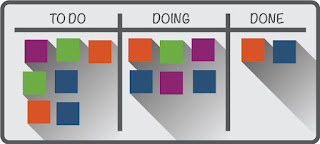Loyalty
This post to LinkedIn got a lot of views (at least compared to my other posts), with 27,515+ views, 73 likes and two comments 3 weeks after posting. The views just keep rolling in. I must have hit a nerve with a lot of people. Here is the un-edited post: Funny thing, just to the right as I write this, I see "How companies killed employee loyalty". I read the posts there, and wondered where the authors had been the last 40 years. Mass and frequent layoffs have been a part of employment so long, that I'm amazed anyone is seriously talking about loyalty. I've been laid off at least six times, and four of those were certainly not productivity concerns about me - the company just went belly-up. It seemed sudden because management hid the true state of the company from the employees until the last minute. Gradually, over a long period of time, we've gone from quality and relevance to time-to-market as the primary determinant of success. By doing that, no one is ...
